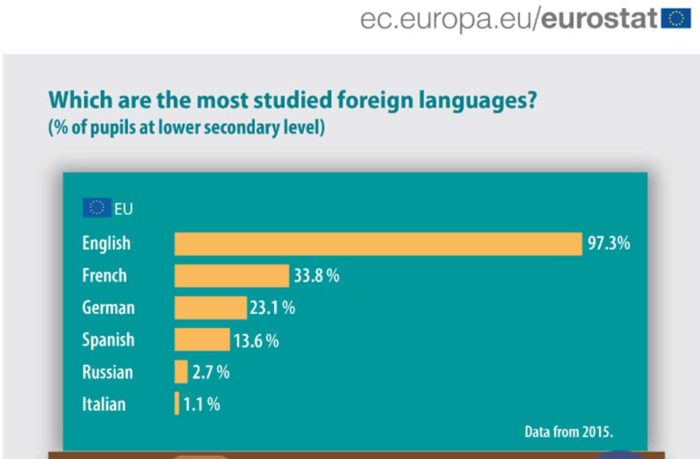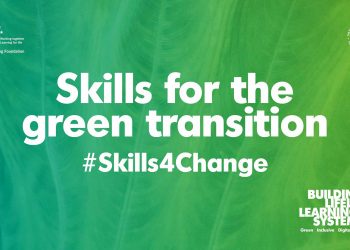How long does it take to learn a new language? Want to learn a new language but feel daunted or unsure where to begin? The ability to communicate in several languages is among the key skills needed to meet labour market demands. Like other transferable skills, it makes both individuals and the economy more competitive.
You don’t need some special talent or a “language gene,” says Lýdia Machová. In an upbeat, inspiring TED talk, she reveals the secrets of polyglots and shares four principles to help unlock your own hidden language talent and have fun while doing it.
The four pillars of successful language learning
Fun – Contact – Methods – System
The Barcelona European Council called for action “to improve the mastery of basic skills, in particular by teaching at least two foreign languages from a very early age”, and for an indicator of language competence. Ever since, the European Commission has supported efforts to develop language learning policy and result indicators.

The 2018 Council Recommendation on a comprehensive approach to the teaching and learning of languages outlines the current challenges and proposes an action plan aimed at:
- boosting language learning by focusing on reaching specific competence levels, based on the Council of Europe’s Common European Framework of Reference for Languages, by the end of compulsory education;
- introducing the concept of language awareness in education and training, which provides an inclusive framework for language learning, taking the variety of learners’ language competences into account;
- ensuring that more language teachers benefit from opportunities to learn and study abroad;
- identifying and promoting innovative, inclusive and multilingual pedagogies, using European tools and platforms such as the School Education Gateway and eTwinning.
Polyglotism – Multilingualism
Polyglotism or polyglottism is knowledge of several languages, consisting of the ability to understand, speak, read, or write these languages. The word is a synonym of multilingualism, but in recent usage polyglot is sometimes used to refer to a person who learns multiple languages as an avocation. Multilingualism, including multilingual societies as well as individuals who speak more than one language, is common. Individual polyglots or hyperpolyglots speak, study, or use large numbers of languages. In rare cases, polyglot savants have mental disabilities, but are able to learn many languages.
What Language Should You Learn?
Polyglots
Even though each polyglot has their own specific method, we could extract three main methods:
- Speak first: As soon as you start learning the language, you begin speaking it with natives. A little at first and progressively more.
- Listen & read first: You read and listen to as many texts as possible. You progressively increase the difficulty of texts and study missing words.
- Translate first: You begin by translating texts from the foreign language to your native language and then vice versa.
- …and always use the Power Of Observation!
How Many Languages Can You Say Hello In?
The Erasmus+ programme offers new opportunities, such as policy experimentation and large-scale partnerships, to develop new strategies for language teaching and learning in multilingual classrooms.
Which European Language Should You Learn?
EU Debates! You?
Your opinion counts!














